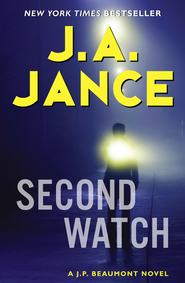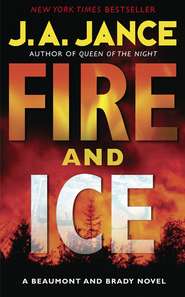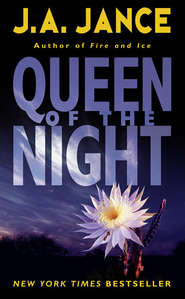По всем вопросам обращайтесь на: info@litportal.ru
(©) 2003-2024.
✖
Betrayal of Trust
Автор
Год написания книги
2019
Настройки чтения
Размер шрифта
Высота строк
Поля
In my book, that constituted strike two for the governor. When you’re a friendless, parentless kid, you’re stuck in a cruel universe that is not of your own making. I had never met Josh Deeson, but I was already in his corner.
“Does Josh wear any jewelry, like a watch or a ring?” Mel asked.
“Josh has the Seiko watch Gerry gave him for eighth-grade graduation. At least I think he still has it. Although, now that you mention it, I don’t think he’s been wearing it much lately.”
Strike three. Governor Longmire was clearly far too important to notice what the kid she’s supposed to be looking after might be wearing. Believe me, I know teenagers can be annoying as hell. And I have some experience with being a less than exemplary parent, but I had also read about some of Marsha Longmire’s stump speeches where she waxed eloquent on a return to “traditional family values” and talked about how loving parenting was needed to bring at-risk kids back from the brink, as long as said at-risk kids weren’t part of her own extended family. How do you spell hypocrite?
Mel glanced at her watch and closed her notebook. “Since you’d like us to complete the search of Josh’s room before he gets home from school, we should probably get started. We won’t be disturbing your husband, will we?”
“No. Gerry is in a hospital bed in what used to be the maid’s quarters on this floor. Before the surgery, going up and down the stairs was just too much for him. Josh’s room is on the third floor.”
“I understand he was using ropes to get in and out?”
Marsha nodded. “Rope ladders, really,” she said. “This is an old building with old wiring and lots of wood. For safety’s sake we keep a rope ladder in each upstairs room to serve as emergency exits in case of fire. Josh used two of them—one to lower himself out his window and onto the balcony over the front portico. He used a second ladder to go from the balcony to the ground.
“One of the guys on my security detail called to report seeing someone exiting the building. Whoever it was managed to get away, but they were pretty sure it was Josh. I went to his room to check. He was gone, but his window was open and the upstairs ladder was tied to the headboard of his bed. I told the security guys that I’d handle things from there, and I did. I left the ropes where they were. When Josh came scrambling back into his room a little after sunrise, guess who was lying in wait? He was quite surprised to see me.”
“I’ll bet he was,” I said. “Is that where Josh’s computer is, on his desk?”
She nodded. “I tried accessing it, but it’s password-protected now with his password instead of mine.”
Somehow I doubted a fifteen-year-old’s idea of an unbreakable password would be much of a barrier to a computer-savvy guy like Todd Hatcher.
“What about your husband?” Mel asked. “Might he know the password?”
“He might, but please don’t ask him. As I said, Gerry is ill. If I can be trusted to handle the governing of Washington State, I can certainly handle a recalcitrant fifteen-year-old. I told Josh that, because he broke curfew, he was losing all his privileges, including his cell phone and his computer. He knew I wasn’t bluffing, and he handed over the cell phone. The computer is up in his room. I made sure he didn’t delete anything before he left for school.”
“I’m assuming you didn’t mention anything to Mr. Willis about what you found on the phone.”
“Absolutely not,” she declared. “I saw no reason to upset him. It was bad enough that I was upset.”
Mel stood up and collected her purse. “Let’s go upstairs and execute that search warrant,” she said. “We don’t have much time.”
CHAPTER 4
MARSHA LONGMIRE LED US THROUGH THE HOUSE AND UP two sets of stairways, all the while giving us a running commentary about who the mansion’s builders were, how much it had cost to build it, how much it had cost to renovate, and how much it had cost to rehab the place after it had been allowed to deteriorate almost to the point of demolition.
It was like listening to one of those canned recordings that you can carry around in a museum to give yourself a guided tour. I’m sure the governor had conducted that kind of tour countless times. I had been to a charity auction or two where a guided tour of the mansion had been on the auction block. No doubt this was the first time two homicide investigators had been given the full meal deal tour treatment.
Clearly the house was more a public edifice than it was a private home. The framed oil paintings on the walls were official portraits of notable folks in Washington State’s history rather than anything that might have come from the governor’s own family. The oriental rugs in the hallways and on the stairs were no doubt expensive, but they were also worn. By the time we reached the top floor—Josh’s floor—they were downright shabby. Apparently the mansion renovation budget didn’t stretch all the way to the top floor. I also noticed that the wooden steps creaked noisily under our weight. That probably explained why Josh had found it necessary to use the emergency rope ladders to go in and out.
In the third-floor hallway, Marsha stopped in front of a closed door and pushed it open. Before stepping inside, Mel removed the search warrant from her purse. “Don’t you want to take a look at this?”
Governor Longmire shook her head. “Ross Connors’s office drew it up. I’m sure it’s in order.”
Her cell phone rang. She pulled it out of her pocket, glanced at it, and then put it back.
“You’re welcome to be here while we do the search.”
Marsha shook her head. “That was my husband on the phone. He needs some help. You’ll give me receipts for anything you take, including the computer, right?”
“Right,” Mel answered.
“Fine,” Marsha said. “No need for me to hang around then. I’d just be in the way.”
She left in what struck me as a big hurry. Yes, her husband was ill and yes, he maybe needed her, but there was a real urgency in the way Marsha almost sprinted back down the stairs.
Once she was gone, Mel handed me a pair of latex gloves and then pushed open the bedroom door. She stepped inside and I followed. The hallway outside the room had been totally impersonal. This was the opposite. Every inch of available wall space had been covered with drawings—both in pencil as well as in pen and ink—from a troubled kid who was suffering the agonies of the damned.
These were not pretty pictures. All of them unframed, they were stuck to the wall by tacks and Scotch tape that would no doubt damage the wall finish.
Mel and I studied the pictures in silence for some time, moving from one image to the next as though we were walking through an art gallery specializing in the art of the macabre. Several appeared to be devoted to various complicated implements that could have been instruments of torture used in the Spanish Inquisition. The instruments themselves were carefully rendered in every mechanical detail, but the faces of the suffering victims appeared to be chillingly modern. I suspected that if we examined Josh Deeson’s high school yearbook, some of those faces might be readily identifiable.
In the pictures there were people being savaged by medieval weapons—swords in some cases, or iron maces. Others were being mowed down in hails of bullets. In each of those, the spray of blood, created one dot at a time with pointillist precision, probably would have done a crime scene blood-spatter expert proud. There were gaping wounds. There was suffering. And for some odd reason, those bloody wounds were all the more chilling for having been artistically and painstakingly crafted in pen and ink.
Mel broke the long silence with a single word. “Whoa!” she said, reaching up to take down one of the drawings. “No wonder Marsha’s next call was to Ross Connors.”
I nodded in agreement and then added, “What do you want to bet that it’s been a long time since either the governor or the First Husband have set foot in this room?”
“Absolutely,” Mel agreed. “If they had, they might have blown the whistle on this budding Columbine kid a long time earlier than just today. First I’ll photograph and number these, then I’ll collect them,” she added. “You look at everything else.”
Mel carries a tiny digital camera in her purse for just this kind of occasion. She dredged it out of her purse, turned it on, and put it to use photographing all of Josh Deeson’s pictures in situ.
She had told me to handle everything else. At first glance, there didn’t appear to be a whole lot of “everything else.” There was a small flat-screen TV set on the dresser. When I switched it on, it came up on the Playboy Channel. That was pretty predictable. I switched it back off.
Lots of boys have mountains of sports stuff scattered around their rooms. Not this one. If Josh Deeson was interested in any wholesome sports, there was nothing here to prove it. A freestanding bookshelf stood next to the desk. It was mostly bare. There were no photos of any kind and no knickknacks, either. The second shelf down held only four books. One was a combination biography and collected works of Sylvia Plath. One was a history of the Spanish Inquisition, complete with a section of shiny pages that contained photographs of some of the equipment we had already seen depicted in Josh’s drawings on the wall. One was a biography of Kurt Cobain. One was a King James version of the Bible with the name “Elizabeth Desiree Willis” printed in gold on the leather-bound front cover.
I still have the Bible that was given to me in my early teens after I had gone through confirmation classes. It was imprinted with my name in gold leaf the same way this one was. Clearly the Bible had belonged to Josh Deeson’s mother, not that it had done her much good. It made me wonder if anyone had ever cared enough about Josh to point him in the direction of church attendance. If so, I doubted if anything he had learned there had taken root. Judging from the books he kept, Josh was twice as interested in suicide as he was in (a) the Spanish Inquisition or (b) his immortal soul; take your pick.
The room itself was neat and clean, spookily so. Emphatically so. I looked through all the dresser drawers, top to bottom. There were socks—carefully paired socks—in the sock drawer, folded briefs in another, folded undershirts in a third, and a selection of folded T-shirts in a fourth. I checked the bottoms of each drawer to see if anything was hidden there, but I found nothing.
For a teenager, Josh’s closet was atypical. All the clothing was carefully hung on hangers, with pants, slacks and even jeans at one end of the closet, while shirts, carefully divided into long sleeves and short sleeves, hung at the other end. There were several pairs of shoes—also neatly arranged—on the floor of the closet. There was a clothes hamper in one corner, half filled with dirty clothes. The only thing stored on the top shelf was an extra blanket.
As an adult, my son, Scott, gives every appearance of being neat and well organized, but I remember his stepfather, Dave Living-ston, telling me how when Scott was fifteen his room was such a mess that Dave and Karen had found mushrooms growing in his closet. That was certainly not the case here. For a kid with very little parental involvement, I had the sense that the compulsive cleanliness of the room was Josh’s doing and nobody else’s.
It didn’t seem likely to me that a housekeeper working for the governor would have ventured all the way up here to the third floor to spend time in this unwanted child’s room doing cleaning. Any right-thinking housekeeper in the universe would have taken one look at the disturbing subject matter in those pictures and freaked. Most likely she would have gone straight downstairs and ratted out Josh Deeson either to the governor or to the First Husband.
The old-fashioned en-suite bath was also scrupulously clean. His medicine cabinet contained a carefully arranged collection of toothpaste, men’s cologne, and deodorant; nail clippers, comb, brush, and a bottle of styling gel. The only visible medication there was a nearly empty prescription tube containing what was evidently a topical treatment for acne. But there was no dust on the glass shelves. There was no grime, and no film of dead toothpaste in the sink. No garbage in the trash can. To top it all off, the toilet seat was definitely down. That was the capper on the jug. Even if I’d never seen the pictures on the wall, I would have said from studying the bedroom and its attached bath that Josh Deeson wasn’t normal—not at all.
When I came back out of the bathroom, Mel was finished with the photos and had started removing the artwork. Where they had once been I could see tracks of tape and tacks. Once Josh moved out of this room it would have to be spackled, sanded, and painted, floor to ceiling.
“Anything?” Mel asked.
“Nothing. The whole room is neat as a pin.”
“Scary, isn’t it,” Mel said. And I had to agree.
The rope ladder had been fastened to the bed frame and headboard, and the bed had then been pushed up against the window. I disconnected the rope ladder from the bed and dropped it into my evidence box. If we ever had an actual crime scene, distinctive fibers from that ladder or the one on the second-floor balcony might very well be important.









